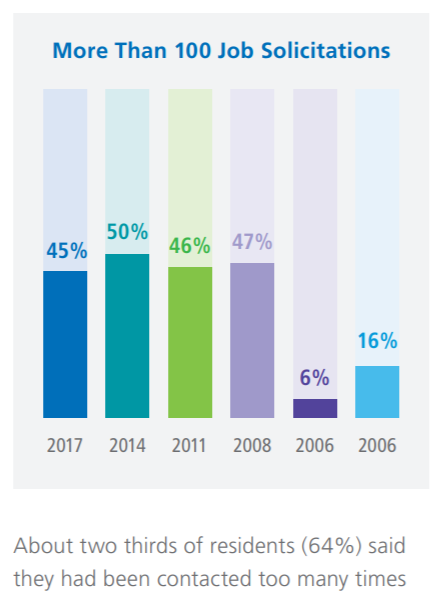- Joined
- Apr 28, 2005
- Messages
- 1,198
- Reaction score
- 3,441
It would be great if there there was a study/survey/report done by a group who professionally studies labor markets and otherwise has expertise/background in this area. Instead, Astro has claimed for years that it can't know anything about the labor market because of anti trust laws. Astro can't even estimate the size of the work force and how many people maybe entering or leaving it. So lets hang our hats on an survey with an incomplete response rate that is sent out to residents by other residents before anyone even starts a position.
The "leadership" of this field have set thing up to know nothing and change nothing. However, this approach is increasingly difficult to sell to quality med students.
The "leadership" of this field have set thing up to know nothing and change nothing. However, this approach is increasingly difficult to sell to quality med students.


